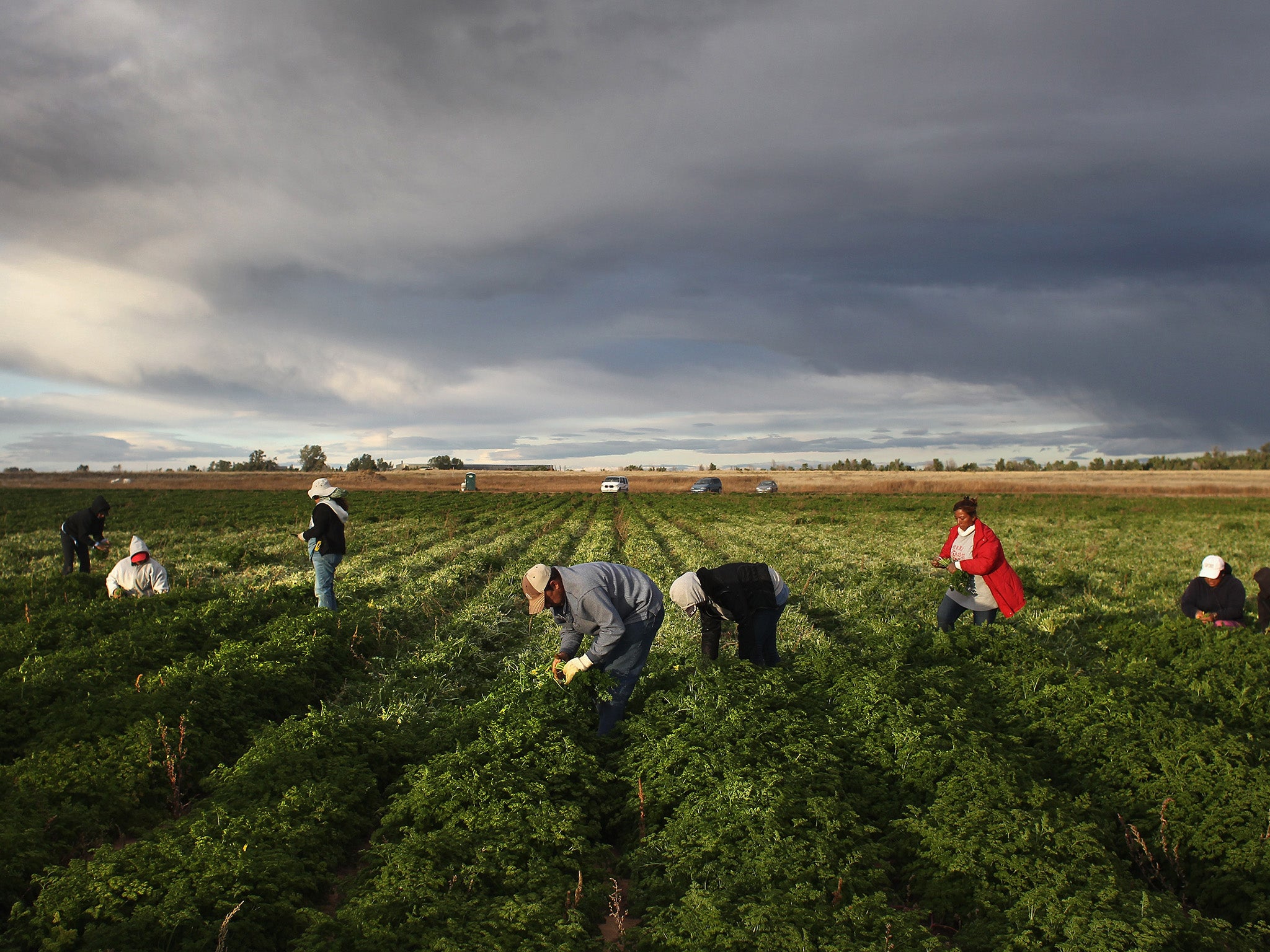Government will struggle to fill low-skilled jobs after Brexit without worker exploitation, experts warn
Two options for post-Brexit immigration both have 'significant costs', study finds

Your support helps us to tell the story
From reproductive rights to climate change to Big Tech, The Independent is on the ground when the story is developing. Whether it's investigating the financials of Elon Musk's pro-Trump PAC or producing our latest documentary, 'The A Word', which shines a light on the American women fighting for reproductive rights, we know how important it is to parse out the facts from the messaging.
At such a critical moment in US history, we need reporters on the ground. Your donation allows us to keep sending journalists to speak to both sides of the story.
The Independent is trusted by Americans across the entire political spectrum. And unlike many other quality news outlets, we choose not to lock Americans out of our reporting and analysis with paywalls. We believe quality journalism should be available to everyone, paid for by those who can afford it.
Your support makes all the difference.The government will struggle to fill low-paid jobs after Brexit while also protecting migrant workers from exploitation, a new report has warned.
Experts said one option being considered by the government would expose staff to the risk of being mistreated by unscrupulous bosses, while another could fail to ensure vital low-skilled jobs are filled.
With freedom of movement due to end when Britain leaves the EU, ministers are mulling how to ensure that employers reliant on foreign labour do not face severe problems after Brexit.
An estimated 500,000 people from EU countries were employed in low-wage jobs in the UK last year, including cleaners, waiters, and fruit pickers.
The report, by the University of Oxford’s Migration Observatory, said there were two options for helping migrant workers enter Britain after Brexit: expanding an existing “youth mobility” scheme to include EU countries, or introducing a work permit system specifically for certain low-paid jobs in industries such as agriculture and healthcare.
However, it warned that either route would bring “significant costs” as well as benefits.
The authors said the work permit option could increase the risk that “unscrupulous businesses will exploit vulnerable workers”, because the employee’s right to stay in the country would be dependent on them keeping their job.
They said: “The same feature that enables work permit schemes to target particular parts of the labour market – the fact that a worker is tied to a specific job – makes it harder for workers to leave exploitative employers in cases where the terms of participation in the scheme have not been successfully enforced."
They added: “While this can be overcome by regulating the wages and conditions employers must offer, the rules must be enforced – a significant challenge, especially if the schemes admit a large number of workers.”
The other option would involve expanding existing youth mobility schemes that allow 18-30 year olds from countries such as Australia, New Zealand and Canada to enter the UK to work for up to two years. Ministers have already outlined plans to include EU nationals in the programme after Brexit.
However, the report said this would not ensure that workers coming to the UK are encouraged to take jobs in areas where employers have have traditionally struggled to attract British staff.
Madeleine Sumption, director of the Migration Observatory, said: “The two most likely ways that future demands for low-skilled labour could be met after Brexit are youth mobility and employer-sponsored visas.
“There’s no guarantee that youth mobility can provide staff for unpalatable roles in out-of-the-way places. That’s because the scheme gives workers lots of options, and people with options often prefer to work in shops and bars rather than muddy fields or food processing plants."
She added: “Employer-sponsored visas give government more control over the work that migrants do, but making sure the visas don’t facilitate abuse is a real challenge. If workers can’t leave a bad job, there’s more responsibility on government to prevent exploitation.
"In theory this should be possible with careful monitoring and oversight, but enforcing labour standards is not an area where the UK has the best track record.”
A Home Office spokesperson said: "After we leave the EU, we will have in place an immigration system which works in the best interests of the whole of the UK.
"This system will be based on evidence. The government has commissioned advice from the Migration Advisory Committee and we continue to engage with a range of stakeholders."
Join our commenting forum
Join thought-provoking conversations, follow other Independent readers and see their replies
Comments